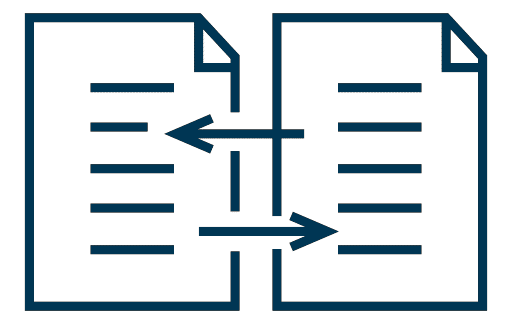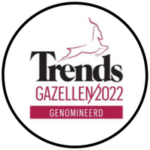Summary In the contemporary business environment, digital procurement is becoming increasingly popular and sought after by businesses around the world. The relationships …
Why are procurement and supply chain management crucial for achieving objectives?
How does procurement and supply chain management benefit strategic objectives?
Cost management and efficiency
Efficient procurement practices ensure that enterprises can obtain materials and services at the most advantageous rates, directly influencing their financial stance. Through the optimisation of supply chain procedures, firms reduce excess, mitigate delays, and increase output, resulting in significant cost reductions and improved operational efficiency.
Quality assurance
Efficient procurement and supply chain oversight ensure the entry of high-quality materials and services into the supply chain through thorough supplier selection and evaluation. By consistently implementing quality control measures, standards are maintained, defects are minimised, and customer satisfaction and organisational reputation are increased.
Risk management
Proactive risk management entails utilising efficient strategies to recognise potential risks, including interruptions in supply, alterations in market conditions, and geopolitical vulnerabilities. Through the formulation of backup strategies and expansion of supplier options, organisations can minimise these risks and ensure uninterrupted operations.
Strategic partnerships
Establishing strategic partnerships is crucial in nurturing robust connections with vital suppliers and stakeholders, fostering shared growth and innovation within the supply chain and procurement. These alliances promote cooperation, resulting in enhanced bargaining conditions, elevated levels of service, and entry to novel technologies and markets.
Compliance and ethics
Compliance and ethics are important in procurement and supply chain management as they require adherence to regulations and ethical principles. Ensuring compliance with laws, industry standards, and corporate social responsibility initiatives not only protects a reputation but also reduces the risk of legal consequences in the long run of an organisation.
Sustainability initiatives
85% of companies find it challenging to achieve procurement sustainability goals, as per Amazon Business’s 2024 State of Procurement report. Modern procurement practices prioritise sustainability by incorporating environmentally friendly standards in supplier selection and sourcing protocols whilst appealing to stakeholder needs and safeguarding reputation.
Companies with a responsive and adaptable supply chain can quickly adjust to changing market conditions, customer preferences, and emerging opportunities. This flexibility ensures that businesses can efficiently expand operations, introduce new products, and enter new markets with agility. By excelling in these areas, procurement and supply chain management play a crucial role in driving organisational success and achieving strategic objectives.
What are the challenges faced in procurement and supply chain management?
Organisations often encounter obstacles in supply chain and procurement management that impede efficiency, effectiveness, and strategic alignment.

Initial start-up cost
The act of digital transformation within procurement is often viewed as an expense rather than a strategic endeavour, leading to challenges in rationalising the return on investment. Insufficient metrics and data hinder the ability to highlight the role of digital transformation in enhancing operational efficiency and reducing costs.

Cultural resistance to change
26% of organisations witness resistance to change, as per research from Prophet. Cultural resistance within organisations complicates the adoption of new procurement processes and technologies, stemming from stubborn stakeholder perspectives, apprehension about displacement, or reluctance to disrupt established workflows and processes.

Legal and compliance concerns
Compliance with regulations and standards adds complexity, requiring effective management of adherence to laws, ethical guidelines, and supply chain transparency requirements. Further external factors like geopolitical instability, natural disasters, or global pandemics tend to disrupt supply chains and impede procurement processes.
Overcoming these obstacles involves strategic leadership, resource allocation for technology and data analysis, cultivating a culture of adaptability, and implementing resilient risk management tactics. This enables enterprises to improve procurement efficacy, mitigate risks, and drive progress in competitive markets.
What are the strategies for overcoming the challenges in procurement?
Digital transformation
The strategic alignment coordination starts with matching digital transformation actions to the overall goals of the business. It aims to demonstrate how technology investments can directly aid in achieving these objectives by leading to substantial cost savings and better operational performance. Strong change management protocols are important for handling cultural resistance effectively. This consists of involving stakeholders from the start, clarifying the direct advantages of digital advancements, and giving full education to guarantee wide approval and smooth merging.
The strategy’s strength lies in the planned investment of funds into modern technology, such as strong e-procurement systems, advanced supplier portals and smart data analysis tools. These technical improvements make operations more efficient, improve clarity throughout supply chains and give power to decisions that are backed by up-to-date data understanding. If organisations concentrate on these actions, they will be able to handle the problems related to digital change effectively. They can also help in growing sustainably while keeping their competitiveness intact within today’s ever-changing business environment.
Data analytics and predictive modelling
Effectively achieving a comprehensive outlook requires investing in systems that integrate data across procurement and supply chain operations. This synchronisation empowers proactive decision-making based on current perspectives, enabled by advanced analytics. With the utilisation of predictive modelling methods within advanced analytics, organisations can accurately forecast demand, mitigate potential risks, and optimise inventory levels with precision. Integrating machine learning algorithms automates recurring tasks, enhancing precision in forecasting and strategic planning.
It is imperative to implement resilient data governance frameworks to uphold optimal levels of data excellence, safeguard against threats, and adhere to compliance regulations. This encompasses assigning clear ownership for all data, setting strict standards for data management, and performing regular audits to preserve the integrity and dependability of data across all operations. By prioritising these strategies, enterprises can effectively utilise data-driven insights to optimise productivity, mitigate potential risks, and sustain a competitive edge amidst the rapidly evolving supply chain and procurement management.
Supplier diversification and risk hedging
53% of companies are investing in supplier diversity to enhance their brand image, reflecting a strategic focus on leveraging supplier diversity initiatives to strengthen their corporate reputation and appeal, according to Supplier.io. It is important to build strong partnerships with current suppliers and expand the pool of providers to enhance resilience and innovation. Seek out vendors who can offer new ideas, competitive pricing, and the ability to withstand disruptions. Conduct thorough risk assessments to identify vulnerabilities and develop strategies to mitigate risks, such as working with multiple suppliers, diversifying geographic locations, and establishing contingency plans.
To establish collaborative partnerships with suppliers, organisations should engage in joint planning sessions, regularly evaluate performance, and implement shared risk mitigation strategies. Transparency and effective communication are crucial to building trust and aligning with sustainability and ethical sourcing goals. By prioritising these approaches, firms can strengthen supplier relationships, reduce supply chain risks, and create a robust and sustainable procurement framework for supply chain management.
Revolutionise your procurement processes with Kronos Group
Revolutionise your procurement processes with Kronos Group’s digital transformation offerings and skilled procurement advice. We utilise innovative technologies to streamline processes and maximise supply chain effectiveness, and strategic procurement initiatives. Our customised solutions empower your entity to thrive amidst current market challenges.
Partner with Kronos Group to unlock new efficiencies and elevate your procurement strategy. Our dedicated team delivers measurable results, enabling operational excellence and sustainable growth for your business. Experience the cutting-edge potential of procurement consulting to propel your enterprise into the future of digital transformation.

Fighting the effects of inflation with sourcing and procurement consultants
Stay up-to-date on the latest insights on procurement, finance, and project management.
Summary Strategic procurement has become a necessity in today’s business world and organisations try to remain competitive. Having the right procurement strategies …
Summary The world of consulting has been undergoing a massive transformation and management consulting jobs are experiencing the impacts of these changes. …
FAQ
The 7 stages of procurement include: Identifying needs, conducting market research, evaluating and selecting vendors, negotiating and contracting, placing purchase orders, managing supplier relationships, and conducting performance evaluation and feedback.
A procurement and supply manager oversees the sourcing, purchasing, and logistics operations of an organisation. They manage supplier relationships, negotiate contracts, optimise procurement processes, ensure timely delivery of goods and services, and maintain compliance with regulations and quality standards.
Procurement focuses on sourcing and purchasing goods and services at optimal prices and terms. Supply chain management involves the end-to-end logistics and distribution of these goods. Together, they collaborate to ensure an efficient flow of materials, minimise costs, manage inventory levels, and enhance overall operational efficiency.














